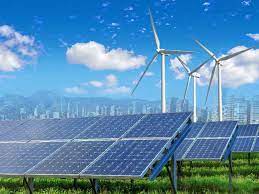 By Hajira Khota
By Hajira Khota
08:09:2021
Eskom started the Renewable Energy Tariff pilot program to supply cleanly sourced electricity to the utility’s commercial customers.
The initiative is aimed at companies that have set corporate renewable energy goals and want to use renewable energy in their facilities or manufacturing processes without investing in renewable energy assets like wind turbines or solar panels.
Monde Bala, Eskom’s Group Executive for Distribution, said the scheme allows businesses to save money on their electricity bills. According to Eskom, customers will be able to reach their renewable energy goals by purchasing energy from Eskom, rather than needing to invest in their renewable energy infrastructure or enter into long-term power-purchase agreements.
According to Monde Bala, group executive of the Eskom Distribution Division, the program aims to provide Eskom consumers with a cost-effective and flexible way to use renewable energy.
Some of Eskom’s renewable electricity installations provide green power, such as the Sere Wind Farm, located near Koekenaap in the Matzikama Municipality of the Western Cape and run-of-river hydro facilities.
The Renewable Energy Tariff pilot program will first focus on renewable electricity generated at the Sere Wind Farm.
According to Eskom, customers will get a blended electricity supply, with up to 100 per cent of their electricity coming from renewable sources. The state-owned power utility will give a maximum of 300 GWh per year to customers it directly supplies during the pilot program on a first-come, first-served basis.
Customers can get a 24-hour blended renewable supply to their facility, as well as the option to relocate without having to move renewable energy assets, according to the statement.
According to the company, this solution allows businesses to have a 24-hour blended renewable supply at their site, while also allowing them to relocate without having to transport renewable energy assets.
Eskom’s Renewable Energy Tariff pilot program will run for two years, until March 31, 2023, when the firm will decide whether to submit the tariff for formal approval.
[LISTEN] to the podcast here







0 Comments